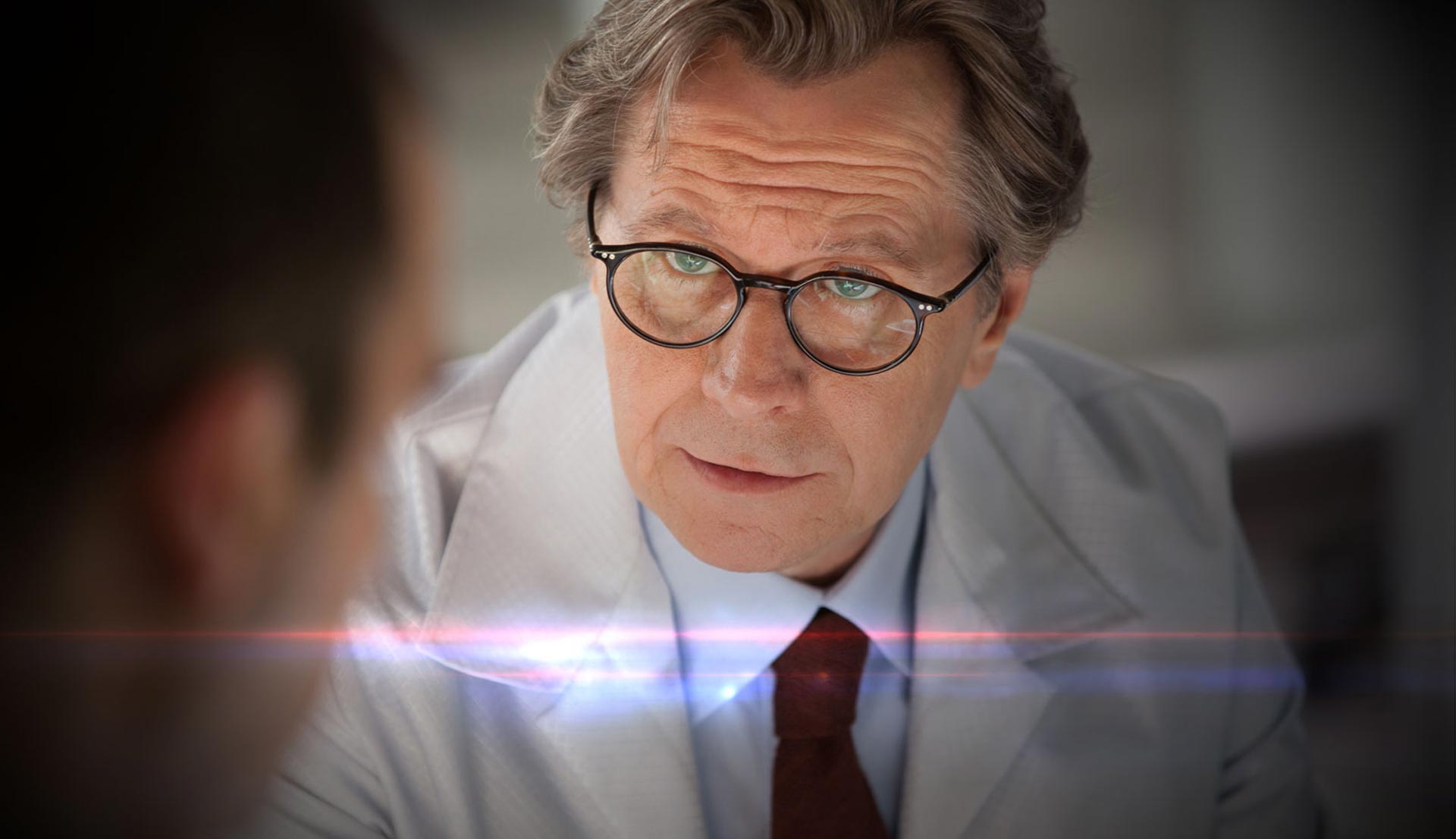Gary Oldman has had a career spanning more than three decades, so it’s no surprise that he knows a thing or two about roles requiring heavy make-up — think of “Bram Stoker’s Dracula,” “The Fifth Element” and “Hannibal,” to name but several famous parts that obliged hours of pre-filming cosmetic submission on his part. Of course, appearing in Christopher Nolan’s “Batman” films, opposite Christian Bale, Oldman has also had the experience of being the guy in a superhero movie who wasn’t consigned to restrictive full-body suits and otherwise cumbersome latex, forced to stand in a makeshift icebox between shots or slink off behind a screen to pee in a bottle.
It was that latter experience he drew upon for director José Padilha’s “RoboCop” remake — and boy did Oldman enjoy it. “The great thing about having been in (extensive) make-up and stuff like that is when you’re working with someone who’s in it, and you’ve been there and done it and you’re not in it anymore, you feel so good,” says the 55-year-old British-born actor with an extended emphasis and a goodnatured laugh. “You get to say things like, ‘Hey, are you hot in that?'”
Torturing “RoboCop” star and title character Joel Kinnaman — with whom he’s set to appear again later this year, in the thriller “Child 44” — may have been fun for Oldman on set, but on screen he’s a man of science and a sympathetic ally for Kinnaman’s police-officer-turned-compromised-law-enforcement-automaton. Oldman costars in the film as Dr. Dennett Norton, the unwitting brains behind the more Machiavellian schemes of OmniCorp CEO Raymond Sellars (Michael Keaton), a profit-hungry capitalist looking to run an end-around on domestic laws banning militarized robotics on American soil.
It’s an interesting and engaging twist on a familiar character — Dr. Frankenstein, but with more of a conscious — made rich and alive by Oldman’s superlative turn. “Yeah, it’s an unusual relationship (between the pair) because it’s a sort of patient/doctor relationship on one level, and then sort of monster/scientist,” says Oldman at a recent Los Angeles press day for the film. “Then they’re like friends, and it sort of becomes like a father-son (relationship too). I think that possibly was a seed of the idea there in the original — because it is a very Frankenstein-type character, sort of this man tinkering around in God’s toolshed. It has (those elements). But in terms of building the character, it was a terrific script to start with and then we had the luxury of rehearsal, because José wanted rehearsal, which is unheard of really in moviemaking. And so, over two weeks, I think we made the script better and better. But character, if it’s good writing, is really on the page — all the clues to the character.”
“I often think that if you’re breaking a sweat, if you’re working too hard for something, that’s always a problem — if you’re having to try to make the writing work,” continues Oldman. “Writing is like a map, there’s all the signs in the material for finding (character). It’s that old Stella Adler thing about reading out, not reading in, so I didn’t bring my own baggage to it. You use your imagination and what is there on the page. So I really didn’t look outside of the script very much. And as far as these bionic engineers and neurosurgeons (like Dr. Norton), I just Googled. And the great thing about Google is you type in neurosurgery and somehow you eventually end up with Peter Sellers or you’re watching Frank Sinatra.” Here, Oldman laughs “Those searches! But yeah, Google is still a great resource.”
Written by: Brent Simon

